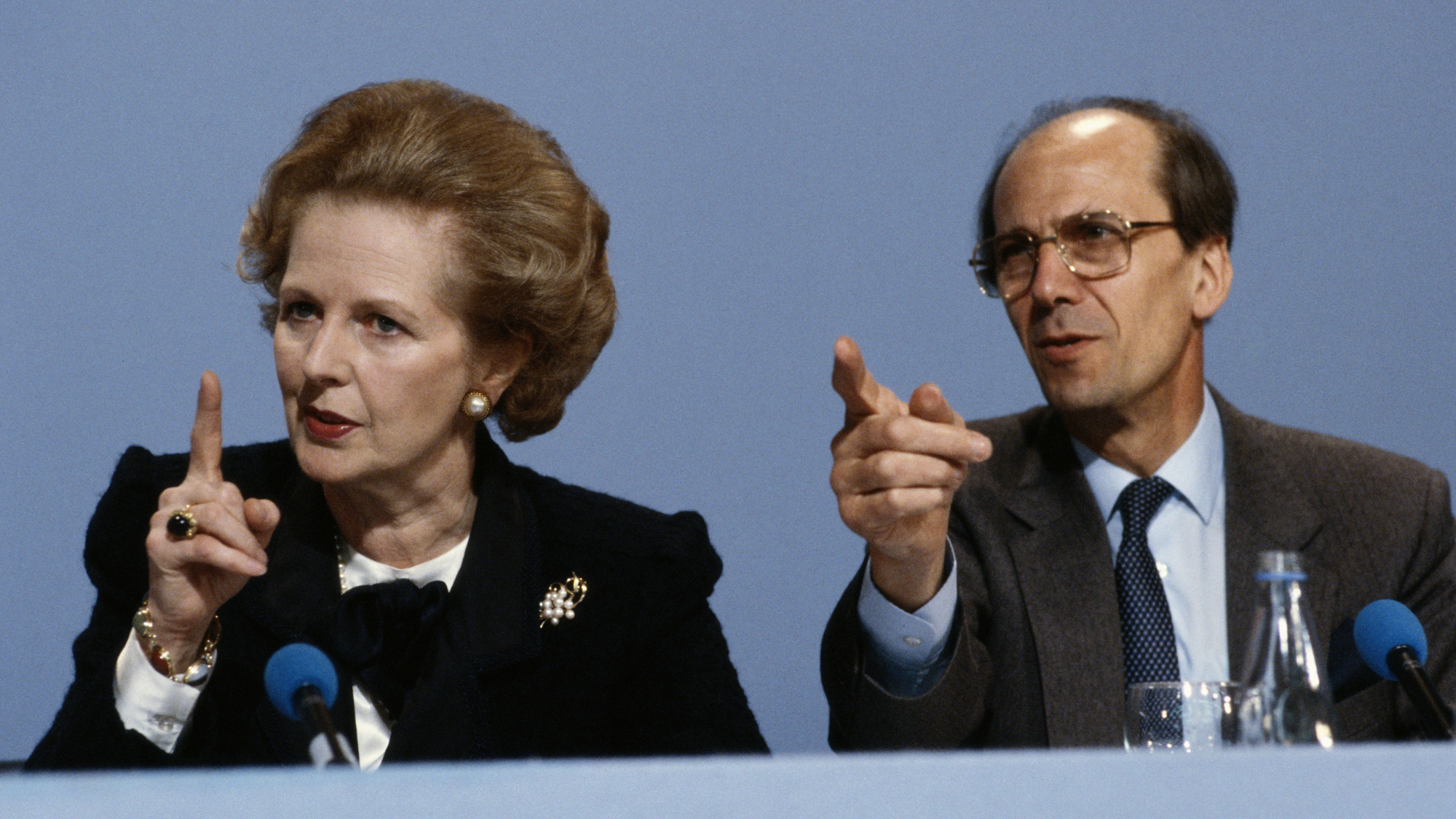Corazon Aquino
The Filipino president who toppled a dictator
A free daily email with the biggest news stories of the day – and the best features from TheWeek.com
You are now subscribed
Your newsletter sign-up was successful
Corazon Aquino
1933–2009
When Corazon Aquino challenged Ferdinand Marcos for the presidency of the Philippines, he scoffed that she had no experience. “It is true,” she replied. “I have no experience in lying, cheating, stealing, and killing.” Soon afterward, in 1986, Marcos’ 20-year dictatorship collapsed, undone by a populist uprising led by Aquino, who became the Philippines’ first female president and an avatar of peaceful democratic revolution. She died last week of colon cancer.
The Week
Escape your echo chamber. Get the facts behind the news, plus analysis from multiple perspectives.

Sign up for The Week's Free Newsletters
From our morning news briefing to a weekly Good News Newsletter, get the best of The Week delivered directly to your inbox.
From our morning news briefing to a weekly Good News Newsletter, get the best of The Week delivered directly to your inbox.
The daughter of wealthy, politically connected sugar plantation owners, Maria Corazon Sumulong Cojuangco graduated from the College of Mount Saint Vincent in the Bronx, N.Y., said The New York Times. In 1954 she married Benigno Aquino, a rising Filipino politician. “In less than 20 years he became the country’s youngest elected mayor, governor, and senator.” But Marcos regarded him as a threat and, in 1972, imprisoned him for seven years. “As her husband’s only link to the world outside, Mrs. Aquino memorized his messages and statements and passed them onto the press.” Released to the U.S in 1980, Benigno Aquino returned to Manila three years later—only to be shot dead by pro-Marcos forces moments after he landed at the airport. At his massive funeral, his widow instantly “became a national symbol” of opposition to Marcos.
In November 1985, with revolt looming, Marcos called for a snap election, said the Los Angeles Times. Aquino decided to oppose him. “Wearing her signature yellow, she turned her campaign into a crusade in which she played the saintly widow taking on the evil dictator,” and pledged, “I offer you honesty and sincerity in leadership.” In February 1986, “when Marcos claimed victory after an election tainted by massive fraud, Aquino launched a nonviolent civil disobedience campaign.” Quickly labeled “people power,” the wave of popular support led to a mutiny in the armed forces, spurring Marcos and his wife, Imelda, to flee to Hawaii.
The uprising “became the model for democracy movements all over the world, and Aquino was named Time’s Woman of the Year,” said The Washington Post. “But the honeymoon soon began to sour.” Aquino endured seven military revolts or coup attempts, “battled a persistent community insurgency,” and ruled a country beset by so many natural disasters that she earned the nickname “Calamity Cory.” Her administration was also unable to combat poverty, stop corruption, or deliver basic services. When she left office, in 1992, “Aquino returned to private life with relief.” But she also did so with pride over the peaceful transfer of power. “This was what my husband had died for,” she said. Aquino is survived by four daughters and a son.
A free daily email with the biggest news stories of the day – and the best features from TheWeek.com
-
 The Olympic timekeepers keeping the Games on track
The Olympic timekeepers keeping the Games on trackUnder the Radar Swiss watchmaking giant Omega has been at the finish line of every Olympic Games for nearly 100 years
-
 Will increasing tensions with Iran boil over into war?
Will increasing tensions with Iran boil over into war?Today’s Big Question President Donald Trump has recently been threatening the country
-
 Corruption: The spy sheikh and the president
Corruption: The spy sheikh and the presidentFeature Trump is at the center of another scandal
-
 The billionaires’ wealth tax: a catastrophe for California?
The billionaires’ wealth tax: a catastrophe for California?Talking Point Peter Thiel and Larry Page preparing to change state residency
-
 Bari Weiss’ ‘60 Minutes’ scandal is about more than one report
Bari Weiss’ ‘60 Minutes’ scandal is about more than one reportIN THE SPOTLIGHT By blocking an approved segment on a controversial prison holding US deportees in El Salvador, the editor-in-chief of CBS News has become the main story
-
 Dick Cheney: the vice president who led the War on Terror
Dick Cheney: the vice president who led the War on Terrorfeature Cheney died this month at the age of 84
-
 Has Zohran Mamdani shown the Democrats how to win again?
Has Zohran Mamdani shown the Democrats how to win again?Today’s Big Question New York City mayoral election touted as victory for left-wing populists but moderate centrist wins elsewhere present more complex path for Democratic Party
-
 Millions turn out for anti-Trump ‘No Kings’ rallies
Millions turn out for anti-Trump ‘No Kings’ ralliesSpeed Read An estimated 7 million people participated, 2 million more than at the first ‘No Kings’ protest in June
-
 Ghislaine Maxwell: angling for a Trump pardon
Ghislaine Maxwell: angling for a Trump pardonTalking Point Convicted sex trafficker's testimony could shed new light on president's links to Jeffrey Epstein
-
 Norman Tebbit: fearsome politician who served as Thatcher's enforcer
Norman Tebbit: fearsome politician who served as Thatcher's enforcerIn the Spotlight Former Conservative Party chair has died aged 94
-
 The last words and final moments of 40 presidents
The last words and final moments of 40 presidentsThe Explainer Some are eloquent quotes worthy of the holders of the highest office in the nation, and others... aren't